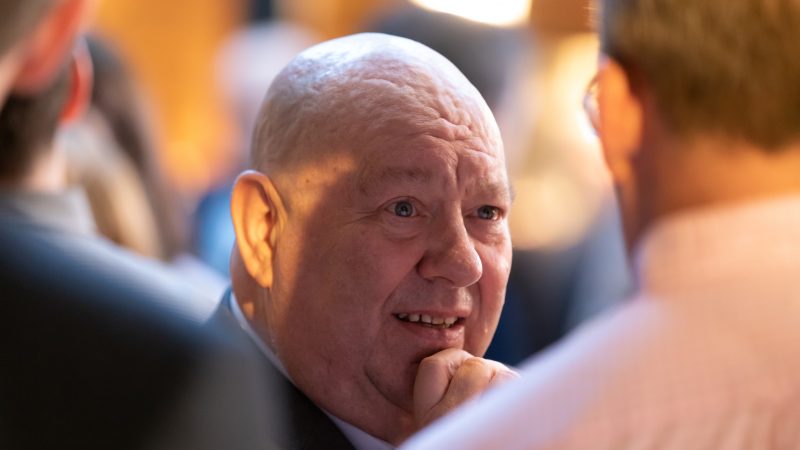
Joe Anderson has announced that he is stepping aside as Liverpool mayor, amid pressure from Labour colleagues following his arrest last week on suspicion of conspiracy to commit bribery and witness intimidation.
The directly-elected mayor, who first took office in 2012 after serving as council leader for two years, was administratively suspended from the Labour Party on Friday evening pending the outcome of the case.
It was confirmed today that Kensington and Fairfield councillor Wendy Simon, the current deputy mayor of Liverpool, will step up to assume the role of acting mayor while Anderson takes a period of unpaid leave.
Announcing the decision, Anderson released the following statement:
“I have always done what I believe is best for the city, and I am taking the following action with those best intentions in mind.
“It is important that everyone in Liverpool knows that our leaders are focussed on what is most important to the people; their livelihoods and, with a pandemic still in force, their lives.
“For this reason, I believe it is important that the city, and government, are reassured that our city is indeed operating in the correct way.
“I am, therefore, stepping away from decision-making within the council through a period of unpaid leave, until the police make clear their intentions with the investigation on the 31st December.
“I will make a further statement at that point. Wendy Simon will be acting as mayor and I have all faith that she will provide the leadership our city requires at this time.
“The arrest on Friday has also been a painful shock for me and my family, following a difficult few months. I need to focus on their future and returning to a normal they can recognise, with the reassurance that I am no longer under suspicion.
“Therefore I am going to focus on co-operating with the police in their ongoing inquiry, as I believe time will make it clear that I have no case to answer.
“This situation has not dampened my passion for our city and the inspiring people who live and work here, most particularly the dedicated public servants who work within the council and the cabinet.
“They will continue their incredible work, as we would expect, against the challenging circumstances we find ourselves in.
“But I am not prepared to contribute my own circumstances to those challenges, so I have reached this decision for that reason alone.
“I am very grateful for the many messages of support I have received and I have faith that, as always, the future of our city is bright and its best days are ahead.”
Anderson had been set to stand for re-election as the Labour candidate on May 6th next year. If he is not returned as a member soon and the election goes ahead, a number of local Labour figures are set to put themselves forward for selection.
Potential mayoral candidates include Ann O’Byrne, who represents Warbreck ward and has been described by one source as the “bookies’ choice”. She resigned from the cabinet in 2018, saying “the mayor isn’t listening”.
Other names have been floated such as council cabinet member Paul Brant of Fazakerley ward, Nick Small, who was sacked by Anderson in 2018, and Barry Kushner, cabinet member for housing and regeneration projects.
It is expected that Labour’s selection process would see candidates self-nominate before being interviewed by a panel of regional board and national executive committee members who would draw up a shortlist.
Whether local party members will be able to have a say via nominations or a ballot, or the party will instead implement a rapid selection process with no such member input, remains to be seen.
Anderson remains on police bail while the investigation continues. The government has written to Liverpool City Council requesting information and the city council’s chief executive Tony Reeves met with Robert Jenrick on Monday.




More from LabourList
‘Turning public services around: Haringey’s story of child protection’
‘Can Labour turn the green tide back to red?’
Tom Belger column: ‘Why is Labour making migrant exploitation easier?’